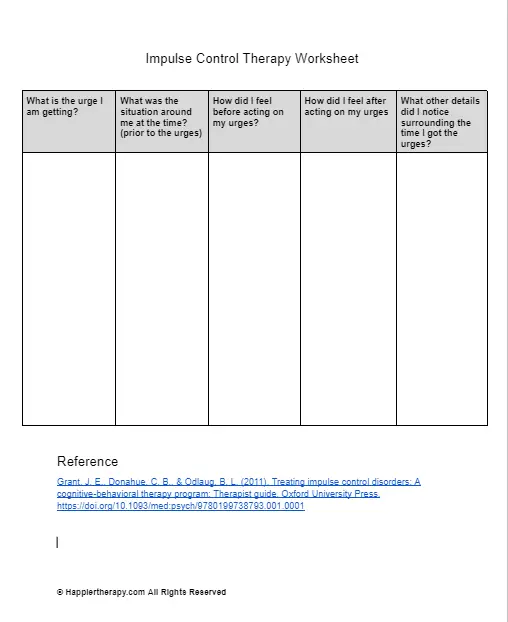Children who struggle with impulsivity can benefit greatly from therapy that includes worksheets designed to help them learn self-control and improve their decision-making skills. These worksheets are a valuable tool in therapy sessions, providing a structured way for kids to work on managing their impulses and developing coping strategies.
Impulsivity can manifest in various ways, such as difficulty waiting their turn, blurting out answers, or acting without thinking of the consequences. By using worksheets specifically tailored to address these behaviors, therapists can help children recognize their impulsive tendencies and learn how to better regulate their emotions and actions.
One common type of worksheet used in therapy for impulsive kids is a behavior chart. This chart allows children to track their impulsive behaviors throughout the day and identify triggers that lead to these actions. By monitoring their behavior patterns, kids can gain insight into their impulses and work towards making more thoughtful choices.
Another effective worksheet for kids struggling with impulsivity is the “Stop and Think” sheet. This worksheet prompts children to pause before acting impulsively and consider the potential consequences of their actions. By encouraging kids to think before they act, this worksheet helps them develop better decision-making skills and learn to control their impulses.
Role-playing exercises can also be incorporated into therapy sessions through worksheets. These exercises allow kids to practice responding to different situations in a controlled environment, helping them learn how to manage their impulses in real-life scenarios. By role-playing with their therapist, children can develop the skills they need to navigate social interactions and make more intentional choices.
In conclusion, impulsive worksheets are a valuable tool in therapy for kids struggling with impulsivity. By using these structured exercises, therapists can help children develop self-control, improve their decision-making skills, and learn to manage their impulses effectively. Through consistent practice and guidance, kids can make significant progress in regulating their behavior and building a strong foundation for emotional growth.
